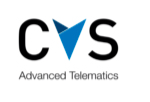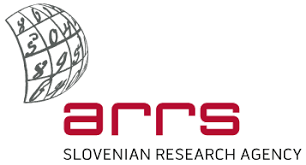Partners
CVS Mobile
The private company CVS Mobile, headquartered in Ljubljana, has been developing solutions for vehicle fleet management since its beginning in 2005. It is the leading Slovenian provider of telematics solutions and one of the most important stakeholders in Central and Southeast Europe in the area of information solutions for commercial vehicle tracking and management. CVS Mobile solutions include GPS positioning technologies that connect with control centres through in-vehicle communication systems and telemetry for transmitting vehicle data. Telematics systems developed by CVS Mobile enable vehicle location and condition monitoring, supporting different channels of communication with vehicles and drivers. These systems can be used to optimize travel routes, improve logistic processes and maximize vehicle fleet flexibility, all of which help reduce employees’ workload, fuel consumption and greenhouse gas emissions.
University of Ljubljana, Faculty of Electrical Engineering (Laboratory for Telecommunications & Laboratory for Multimedia)
Both research and teaching laboratories are incubators of people, knowledge and ideas in telecommunications and other related sciences, such as multimedia, information, computer and electrical sciences. Members of the laboratories are active in numerous interdisciplinary fields: Internet of Things (IoT); traffic measurements and theory; simulation of traffic switching and routing in synthetic and real networks; Quality of Service (QoS) mechanisms in data, audio and video transfer in both wired and wireless IP networks security mechanisms in IP and mobile systems; ICT for improving health care and empowering people with disabilities; user-centred design and development of products and services; user experience analysis, design and development of multimodal interactions; and usability and accessibility testing. An important activity of the laboratory, which works closely with the business sector, is the development and testing of user interfaces and multimodal interactions, which is a skill necessary for the successful design of the IT solution. The Faculty of Electrical Engineering is also hosting an innovative student community, MakerLab. MakerLab is an open laboratory at the University of Ljubljana that provides access to all the tools and skills students need to bring their coding, crafting and other innovative skills to life.
Research Centre of the Slovenian Academy of Sciences and Arts (ZRC SAZU)
ZRC SAZU is the leading Slovenian research centre in the humanities and a cutting-edge academic institution in central, eastern, and southeast Europe. It has a multidisciplinary character; in addition to the humanities, its spheres of research also cover the natural and social sciences. In its present form as a network of seventeen institutes with some 300 researchers and technicians. ZRC SAZU activities are incorporated into global research circles, thanks not only to knowledge, experience, and skills of the researchers and technicians, but also to high-quality and modern technical equipment. The main mission of the research organisation is to conduct basic research for national research programmes, national basic research projects, international projects, and centres of excellence. ZRC SAZU also supports a series of applied projects that reach beyond the narrow focus of individual expert fields and enable priceless inter-institute and interdisciplinary cooperation. The experience of ZRC SAZU members are valuable in the mutual cooperation of researchers in the project team and in overcoming the boundaries between different disciplines for the purposes of the project.



